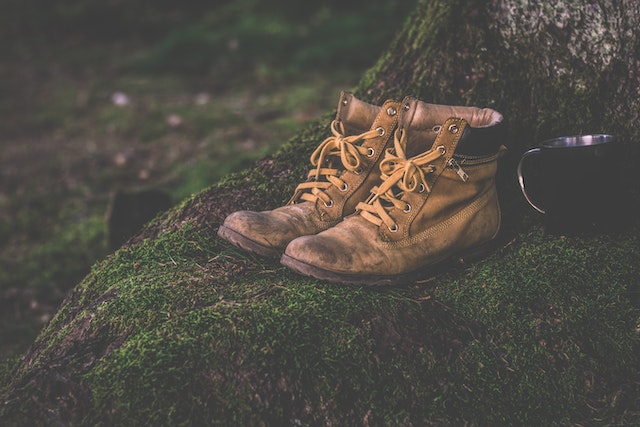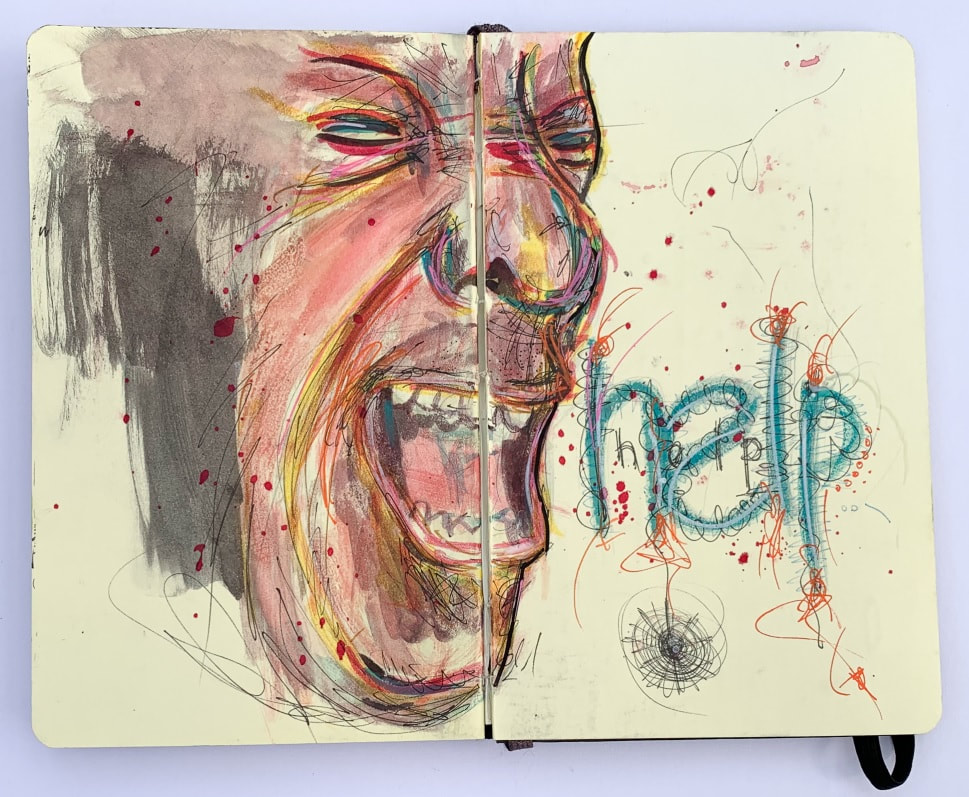|
It feels like it's been a long time coming, but Summer is most definitely here! The sun seems to bring us all out of our shells, and suddenly there is a buzz of life and activity, which can lift our spirits and make us feel a bit more sociable.
That said, the Summer can bring its own set of challenges which might impact people's mental health. So let's consider what these are and how we might navigate them. Summer is the season of events, with everything from festivals, to fairs, to family fun days. If you use social media platforms, it's likely you're bombarded with advertised events, and with so much choice, this can be a bit overwhelming! If we're not careful, we can buy into the idea that to be an interesting or likeable person, we have to do as much as possible. Cram our lives with as much activity as we can. But in reality, this can leave us tired and with no down-time to properly rest. What's more, many of these events cost money, and in a cost-of-living crisis, that can put a lot of pressure on families who are just trying to get by. On a similar note, many people live for the next dream holiday, building it up as an idyllic escape- an opportunity to finally relax and indulge. Again, these holidays can be expensive and are perhaps not always as perfect as we'd hoped. I'm not trying to paint a negative picture here; holidays are a lovely treat, they're just not necessarily going to provide that silver bullet when it comes to day-to-day mental health and wellbeing (IMO!). For people who experience social anxiety, or have strained relationships with family, an increase in the number of invitations to social functions- bbqs, weddings, parties- might feel very difficult. Similarly, loss and unfulfilled dreams can make those social get-togethers particularly painful. Those with children might feel daunted at the prosect of the sprawling summer holidays: how to keep the kids occupied and entertained, especially if you're not feeling too great? Conversely, people who are quite isolated may feel loneliness more intensely if groups or classes they normally attend take a break over the summer. Obviously all of these things are part of the ebb and flow of life, but here are some things to consider that might make it all a little easier. 1) Planning: thinking ahead about what you might like to do over the summer, and budgeting for this, might help to find the right balance of busyness and cost. Who and what are your priorities? It's ok to say no to other invitations. 2) Boundaries: it's ok to limit the amount of time or money you spend on things, and to be firm about this with others (even if they don't understand). 3) Self-care: plan to do some things that "fill your cup". What brings you joy, inspiration, excitement? What helps you properly relax? Could you go on a retreat, have a day at the beach, or spend a day reading in the garden? 4) Less is more: holidays or days out don't need to be expensive or extravagant. If you have kids, they will enjoy time spent with you more if you are able to be present, not stressing over cost or time schedules. I realise everyone is different and facing their own challenges; you may not feel the issues raised here apply to you, or perhaps there are other difficulties in your life that are not mentioned here. Either way, I hope you find some time to slow down and unwind this summer.
0 Comments
Mental health awareness week takes place in the UK from 13th-19th May this year. The theme is movement: moving for our mental health. This is an opportunity to put the spotlight on the ways in which mental and physical health are inextricably linked.
Do you see yourself as a perfectionist? Perfectionism is the need to be, or appear perfect- as if that were actually attainable. It might show up in any number of ways, including, but not limited to:
February is Boost your Self-esteem month. This is a topic I am passionate about and it's often the focus of the work I do with clients in therapy.
So, here we arrive at the start of another new year: 2024. In my last blog post, I wrote about how Christmas can be a difficult time for people; of course, the new year can be equally challenging. The celebrations being so close together can feel like a double whammy!
A substantial snowfall last weekend was a very tangible reminder that Winter is well and truly here. Personally, I like Winter. At least the part leading up to Christmas. But I know many find it a challenging time, for different reasons.
It feels like there are so many demands on our time, energy and finances these days. What's more, the choices we have about how to use these valuable resources can feel overwhelming!
If you are reading this blog, chances are the title has intrigued you. Perhaps you have heard words such as neurodiversity, neurodivergence or neurotypical being used but have no idea what they mean. Maybe you know someone who has recently been diagnosed with, say, AD(H)D, or Autism, and want to understand more about these differences. Or perhaps you yourself are neurodivergent. My hope is that this blog will be informative for a wide audience with an interest in this topic.
It's important to state from the outset that I am approaching this topic from a person-centred, neurodiversity-affirmative perspective. Therefore, I avoid using terms such as disorder or disease, which are indicative of ableism and the medical model. As someone with dyslexia and probable dyscalculia, I hope to bring insight from my own experience, as well as valuable learning from my work with neurodivergent adults and children during the course of my teaching and counselling careers. I think it's also important to clarify the meaning of some terms which I will be using in this blog: Neurodiversity - the expected range of variations across all human neurocognitive functioning. Neurodivergence/neurodivergent - a person whose neurocognitive functioning differs in one or more ways from what is considered within the typical/expected range of human neurocognition. Neurotypical – a person whose neurocognitive function most closely resembles what is considered to be in the typical/expected range. *Taken from Free2bMe's Neurodiversity 101 training resources What brings so many neurodivergent people to therapy? As well as genetics, it has been shown that environmental factors- such as the quality of attachment with the primary caregiver in early infancy- can greatly affect the development of our brains. While this is a likely component in neurodivergence, I also believe that much of what is seen as disability or deficiency in neurodivergent people is in fact their difficulty in navigating a complex, fast-paced, one-size-fits-all culture that has neither acknowledged nor accommodated difference very well. While I understand that the notion of diagnoses can jar with person-centred thinking, we do live in a world that functions by categorising people in this way, and sadly often the only way to be seen, understood and supported is by being assessed and diagnosed. However, by the time they reach an age where their differences may have become noticeable enough to be assessed, many neurodivergent people have already mastered the art of masking and adapting, to exquisite perfection. The fact is, the effects of being unseen, unsupported, misunderstood, conditioned to behave in "acceptable" ways, and expected to meet the same expectations as neurotypical people can be CATASTROPHIC for the neurodivergent person. They might seek counselling because they feel they have lost touch with their core self in a way that leaves them asking "who am I?" Their self-esteem can be extremely low, and there may be a deep-seated sense of shame. I would argue that until fairly recently, there has been no framework in society for understanding and accepting neurodifference (except in the more pronounced cases), so the neurodivergent child felt they must try to hide their differences to fit in. Parents and teachers may have compared them- explicitly or implicitly- to their neurotypical siblings or classmates. Indeed, the school system still measures all children with the same yard-stick, branding those who perform less well in exams and tests as "lower ability", "less able" or "the bottom set" (I too am guilty of getting sucked in to using this language while working as a teacher). The neurodivergent child will probably have internalised these messages that they are somehow less than others, despite their many strengths. They might even believe that they are incapable, leading to a sense of learned helplessness. Sadly, the many strengths they possess are overlooked. As awareness about neurodiversity spreads, many adults are now seeking assessments for conditions such as AD(H)D and Autism. Many are also considering therapy because they want to make sense of their differences, how these have impacted their lives growing up, and how their experiences might have shaped core beliefs about themselves and others. How can person-centred therapy help? The person-centred therapist is interested in how the client experiences the world as a unique individual. Even if there has been a formal diagnosis of neurodivergence, the therapist will not make any assumptions about the client. Instead, they will listen intently and try to understand what is has been like to be that client living with neurodivergence. They will also open up space to acknowledge and celebrate the many strengths that neurodivergent people possess. This is hugely validating when a client may have had people down-playing, undermining or dismissing their differences all through life. The therapeutic relationship is at the heart of person-centred counselling; it is this that brings healing, rather than techniques or behaviours. This is hugely important for a neurodivergent person who may have great difficulty trusting others, and may struggle with relationships. Obviously trust does not come overnight, and it can take time to form this alliance, but once a sense of safety is established, the client can begin to remove the mask and allow their true self to be seen by another who will accept them just as they are. It is crucial that the therapist has an understanding of neurodivergence, so that they can understand how the sessions may need to be adapted to meet the client's needs. For instance, the environment may need to be adapted, extra reminders given for sessions, information and resources be given in different forms. This opportunity for the client to voice their individual needs and have them responded to is all part of the work and can help build confidence and autonomy. Another way in which therapy can help is by giving the client space to explore what a diagnosis might mean for them. Not everyone wants the expense, or the potentially long wait for formal assessment- in this case a self-diagnosis may suffice. For others, the possibility of receiving financial, learning or workplace support can bring relief and hope. Counselling gives an opportunity to explore thoughts and feelings about these different options. Final thoughts Neurodivergents have so much to offer the world as sensitive, creative, determined, insightful people, often with a great capacity to delve deeply into a particular area of interest. Imagine a world where neurodifference was valued and championed! If this blog has resonated with you, perhaps because you are neurodivergent, or think you might be, please do get in touch via the contact page of my website for more information or to discuss booking a session. How often do you go for a walk simply for walking's sake? As with many things in life, walking can become about the end goal, rather than the process itself. We walk to get from one place to another, to exercise the dog or we count our steps to stay fit. Of course, these things are all beneficial and perhaps even necessary, but what if the real value actually lies in the act of walking itself? Personally, I have come to realise that the more I incorporate walking into my everyday life, the more it becomes a way of life. This practice can enhance all aspects of wellbeing. If you're intrigued about how, then read on! I have always enjoyed walking, but during the pandemic I became more intentional about it, paying greater attention to its impact on my mental health. During lock-down, when we were restricted to our local area, I discovered another world right on my doorstep: networks of intriguing paths leading down alleyways and even beautiful green spaces, previously invisible to me! I developed a habit of taking a short walk every morning, and this offered a grounding anchor when the world felt unpredictable and unstable. This routine brought familiarity and reassurance in a tumultuous time. So helpful did I find this, that I have kept the routine going; why stop doing something so good?! One of the silver linings of the pandemic for many of us (though certainly not all) was the freeing up of more time. When we were permitted to travel further afield in between the lock-downs, I spent hours exploring the nearby Peak District on foot, with its rugged hills and stunning views. Already a keen nature enthusiast, I fell in love with the natural world all over again. Perhaps my gratitude for beauty was sharpened having been relatively confined for some time? Another important feature of the pandemic was that walking became the new way to spend time with people- at least for me- and one friendship in particular deepened through doing regular walks together. This is something else that continues to this day. It was about this time that my sister Naomi and her partner embarked on an ambitious adventure trekking the Pacific Crest Trail (PCT), from the Mexico-US border, through the wilderness, all the way to the Canada-US border; a journey over 2000 miles and taking around five months to complete. For her, walking truly did become a way of life! When I asked her recently about her experience of walking the trail, this was her response: The most powerful walking experiences I’ve had have been where I’ve slept right under the stars in a bivvy bag. The sky becomes your shelter. For days on end you have that direct contact with the outdoors and there’s something uniquely special in that. When I am walking in nature, I am usually in one of three states of mind, all of them good. The first is thinking. It’s a sacred space to process events, emotions, hopes and fears. It’s a quiet, safe place where the rhythm of your footsteps help to slow racing thoughts and often inspire new and helpful ways of thinking about things. The second is creative inspiration. I like writing, and the rich and endless soundscapes, shapes, colours and textures will often cause poems or phrases to float into my mind and I will stop to jot them down before I forget, or I will let them come and drift away, enjoying them as they pass. Thirdly, flow. A meditative headspace where I feel the trees and the rocks, the birds and the sky as an extension of myself. I am not thinking about anything in particular in this headspace but I feel a deep sense of relaxation and awareness of my surroundings. I can sit and stare at a log for many minutes and just absorb its beauty in a state of total rest. If you're interested to hear more about Naomi's experience walking the PCT and other trails and pilgrimages, you can find links to her blogs and vlogs at the bottom of the page.
There is so much to say about the benefits of walking, it's hard to capture them all with words. The list below is an attempt to highlight a few:
I hope this blog has inspired you to introduce walking into your life! I would love to hear about your experiences. Please do leave a comment if you'd like to share them. Link to Naomi's blog and vlog: www.walkingsimplelife.wordpress.com www.youtube.com/@naomigill190 Journaling is a powerful and cathartic way to express and process personal thoughts and feelings; a therapeutic art journal typically takes a visual- rather than written- form (although writing is often incorporated).
I like to think of journaling as a kind of self-therapy. Often, what emerges on the page comes from a very intuitive part of the self and can be surprising and enlightening: a mirror to the soul. Journaling is a channel through which inner wisdom can flow. Although journal prompts can be a great way to get started with the process, the habitual journal writer will learn to trust their own instincts. There is no right or wrong way to journal! This absence of rules or an agenda is both liberating and empowering. Can you tell I'm a fan?! The art journal has played a spectacular role in my own journey of healing and growth. I write in a journal every morning, yet during especially difficult times of intense emotions, or when processing something really significant, I have found myself turning to art instead. Sometimes an image can get straight to the heart of the matter, where words are but a faint shadow. Having reflected on why images are so helpful on the journey of self-understanding, I believe it is because they offer us something with form and substance to connect our experiences with, so that we can make sense of them. What's more, the universality of metaphors, or symbols, gives us a common language to communicate our thoughts and feelings with others. I speak from personal experience when I say that the very act of being creative when journaling feels deeply fulfilling. Some felt sense or idea that had been gestating within us is birthed. When it is externalised, we can see it for what it is. This can bring about a real feeling of relief and even joy. Whilst I think anyone could benefit from art journaling, those who tend to think visually may find it comes quite naturally to them, whereas others prefer the medium of writing, music, drama or the spoken word. All of these are creative ways to explore our inner world. I encourage the clients I work with to find the language that feels right for them. If you'd like to give art journaling a go, I have put together a list of tips which may help you get started:
Photo credit (below): Paul Bishop |
AuthorLaura Green Archives
May 2024
Categories |












 RSS Feed
RSS Feed